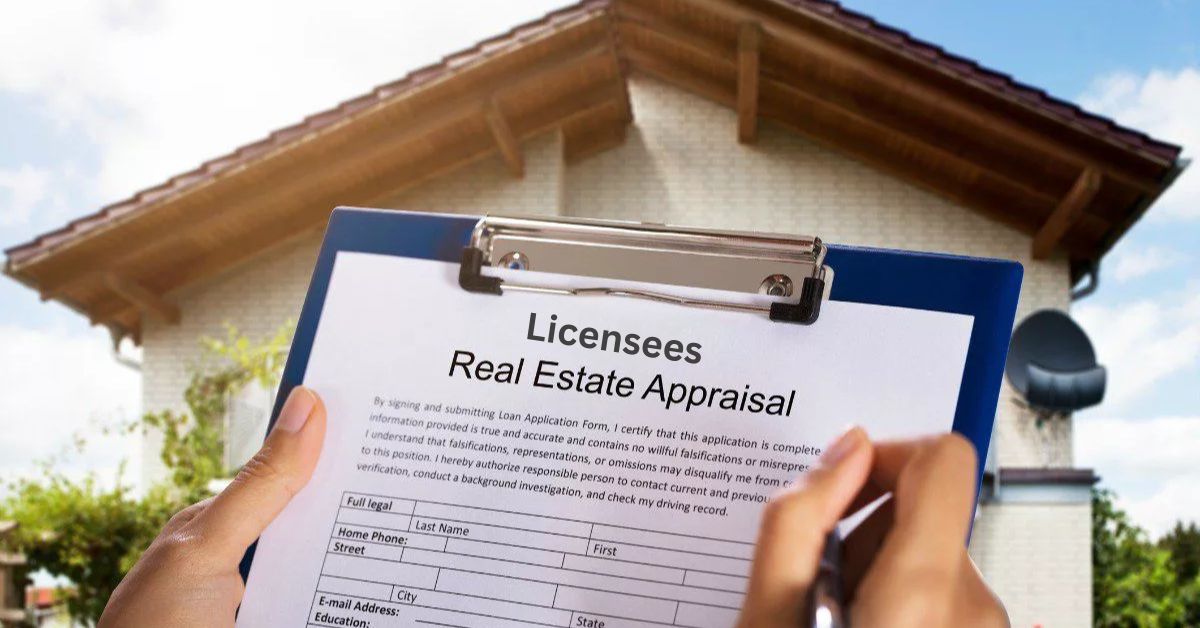When it comes to buying, selling, or leasing real estate, understanding the different types of licensee relationships is crucial. The terminology surrounding real estate licenses can be confusing, but having a clear grasp of these concepts can help you make informed decisions and protect your interests.
In this comprehensive guide, we’ll dive deep into the world of licensee real estate, exploring the various roles, responsibilities, and relationships that come into play.
What is a Licensee in Real Estate?
A licensee in real estate is an individual who holds a valid license issued by the state to engage in real estate transactions. These licenses are typically categorized into two main types: real estate agents and real estate brokers.
Real Estate Agents: Agents are licensed professionals who work under the supervision of a real estate broker. They are qualified to represent buyers or sellers in the purchase or sale of properties. Agents must complete specific educational requirements, pass an exam, and meet other state-mandated criteria before obtaining their license.
To become a real estate agent, most states require the following:
- Complete a pre-licensing education program (typically 60-90 hours)
- Pass the state real estate licensing exam
- Submit fingerprints for a background check
- Provide proof of legal residency or citizenship
- Pay applicable licensing fees
Real Estate Brokers: Brokers are licensed professionals who have met additional educational and experience requirements compared to agents. They can work independently, supervise real estate agents, and operate their own real estate businesses. Brokers have a higher level of responsibility and are held to stricter standards in terms of knowledge and ethical conduct.
The typical requirements to become a real estate broker include:
- Hold an active real estate agent license for a specified period (often 1-3 years)
- Complete additional broker pre-licensing education (90-180 hours)
- Pass the state real estate broker licensing exam
- Meet experience requirements (e.g., documented real estate transactions)
- Submit fingerprints and background check
- Pay applicable licensing fees
Both agents and brokers must renew their licenses periodically and complete continuing education courses to maintain their licenses in good standing.
Types of Licensee Real Estate Relationships
The relationship between a licensee (agent or broker) and their client can take several forms, each with its own set of duties and obligations. Here are the most common types of licensee real estate relationships:
Seller’s Agent
A seller’s agent, also known as a listing agent, represents the interests of the property seller. When you hire a seller’s agent, they owe you certain fiduciary duties, including:
- Loyalty: The agent must act in the seller’s best interests, even if it conflicts with their own interests.
- Obedience: The agent must follow the seller’s lawful instructions.
- Disclosure: The agent must disclose all relevant information about the property and the transaction to the seller.
- Confidentiality: The agent must protect the seller’s confidential information and not disclose it without permission.
- Reasonable Care: The agent must exercise reasonable care and diligence in their actions on behalf of the seller.
Seller’s agents are responsible for marketing the property, negotiating offers, and guiding the seller through the entire selling process. This includes:
- Determining the appropriate listing price based on market analysis
- Preparing the property for showings and open houses
- Advertising the property through various channels (MLS, online listings, print media)
- Coordinating showings and providing feedback to the seller
- Negotiating offers and counteroffers on behalf of the seller
- Facilitating the transaction process from contract to closing
Working with a skilled seller’s agent can make a significant difference in maximizing your home’s sale price and ensuring a smooth transaction.” – Jane Smith, Real Estate Broker
Buyer’s Agent
A buyer’s agent represents the interests of the property buyer. Similar to a seller’s agent, a buyer’s agent owes fiduciary duties to their client, including:
- Loyalty: The agent must act in the buyer’s best interests.
- Obedience: The agent must follow the buyer’s lawful instructions.
- Disclosure: The agent must disclose all relevant information about the property and the transaction to the buyer.
- Confidentiality: The agent must protect the buyer’s confidential information.
- Reasonable Care: The agent must exercise reasonable care and diligence in their actions on behalf of the buyer.
Buyer’s agents are responsible for helping clients find suitable properties, negotiating offers, arranging inspections, and guiding them through the entire buying process. This may involve:
- Identifying the buyer’s needs and preferences
- Searching for available properties that meet the buyer’s criteria
- Scheduling property viewings and tours
- Providing insights and advice about neighborhoods, schools, and amenities
- Analyzing comparable sales data to determine a fair offer price
- Negotiating offers and counteroffers on behalf of the buyer
- Coordinating inspections, appraisals, and other due diligence
- Guiding the buyer through the closing process
A knowledgeable buyer’s agent can be your best advocate, ensuring you find the perfect home and negotiate the best possible terms. John Doe, Real Estate Agent
Disclosed Dual Agent
In some cases, a single agent or brokerage firm may represent both the buyer and the seller in a transaction. This is known as dual agency, and it requires the full disclosure and consent of all parties involved. While dual agency is legal in most states, it can present potential conflicts of interest.
When acting as a disclosed dual agent, the licensee’s fiduciary duties are limited. They cannot fully represent the interests of either party and must remain neutral. Dual agency is often discouraged, as it can be challenging for an agent to maintain impartiality and provide unbiased advice to both parties.
If you find yourself in a dual agency situation, it’s important to understand the limitations and potential conflicts. The agent must disclose their role as a dual agent and obtain written consent from both parties. They cannot:
- Disclose confidential information from one party to the other without permission
- Advise either party on strategic negotiation tactics
- Advocate for one party over the other
Dual agency can be appropriate in certain circumstances, such as when both parties are experienced in real estate transactions and are comfortable with the arrangement. However, many real estate professionals recommend avoiding dual agency whenever possible to eliminate potential conflicts of interest.
Transaction Broker
A transaction broker is a neutral party who facilitates the real estate transaction without representing either the buyer or the seller. Their role is to provide factual information, coordinate the transaction, and ensure that all legal requirements are met.
Unlike agents representing a specific party, transaction brokers do not owe fiduciary duties to either the buyer or the seller. They are obligated to treat all parties fairly and honestly, but they cannot advise or advocate for either side.
The responsibilities of a transaction broker typically include:
- Presenting and explaining the terms of the purchase agreement
- Answering questions about the property and transaction process
- Coordinating inspections, appraisals, and other due diligence
- Facilitating the exchange of documents and information
- Ensuring compliance with legal requirements and deadlines
Transaction brokerage can be a suitable option when both parties are experienced and knowledgeable about the real estate process, or when they prefer to handle negotiations themselves without representation.
It’s important to note that transaction brokers cannot provide the same level of advocacy and guidance as a dedicated buyer’s or seller’s agent, as their role is limited to facilitating the transaction impartially.
Disclosures and Paperwork in Licensee Relationships
Failure to provide proper disclosures or comply with paperwork requirements can lead to legal consequences and potential liability for the licensee and their brokerage. It’s crucial for agents and brokers to prioritize transparency and follow all disclosure laws to maintain the trust of their clients and uphold professional standards.
In addition to disclosures, there are various other forms and documents involved in real estate transactions that licensees must be familiar with and handle properly. These may include:
- Purchase and Sale Agreements: These legally binding contracts outline the terms and conditions of the real estate transaction, including the purchase price, contingencies, and other essential details.
- Addenda and Amendments: These are additional documents that modify or supplement the original purchase agreement, such as adding or removing contingencies, adjusting the closing date, or addressing specific issues related to the property.
- Closing Disclosures: These documents provide a detailed breakdown of the costs and fees associated with the transaction, ensuring transparency for both the buyer and the seller.
- Title Documents: These include title reports, title commitments, and title policies, which outline the ownership history and any encumbrances or liens on the property.
Licensees must ensure that all necessary forms and documents are completed accurately, reviewed carefully, and signed by the appropriate parties. Attention to detail and adherence to legal requirements are essential to avoid disputes, delays, or potential legal issues during the transaction process.
Avoiding Conflicts of Interest
Real estate licensees must be vigilant in avoiding conflicts of interest that could compromise their ability to represent their clients’ best interests. Some common situations where conflicts may arise include:
- Undisclosed Dual Agency: If an agent represents both the buyer and the seller without proper disclosure and consent, it constitutes undisclosed dual agency, which is a violation of licensing laws and ethical standards.
- Personal Interest in the Property: If an agent or broker has a personal interest in the property being bought or sold, such as owning it themselves or having a family member involved, they must disclose this potential conflict.
- Accepting Improper Compensation: Licensees are prohibited from accepting compensation or incentives from third parties that could influence their representation of their clients.
- Representing Competing Clients: In some cases, an agent or broker may represent clients with competing interests, such as multiple buyers interested in the same property. This situation requires careful management and disclosure to avoid potential conflicts.
Violations of these ethical standards can result in disciplinary action, fines, and even the revocation of a real estate license. It’s essential for licensees to prioritize their clients’ interests, maintain transparency, and seek guidance from their brokers or legal counsel when potential conflicts arise.
Real-life examples and case studies:
- Undisclosed Dual Agency Case: In a recent case in [State], a real estate agent was found guilty of undisclosed dual agency. The agent represented both the buyer and the seller without proper disclosure, resulting in a $10,000 fine and a six-month suspension of their license. This case highlights the importance of transparency and obtaining consent from all parties.
- Personal Interest Conflict: In [City], a real estate broker was disciplined for failing to disclose that their spouse was the owner of a property they were listing for sale. The broker’s personal interest in the transaction should have been disclosed to potential buyers to avoid any perceived conflict of interest.
- Improper Compensation Case: In [State], a real estate agent was sanctioned for accepting a referral fee from a home inspector without disclosing it to their client. This undisclosed compensation represented a conflict of interest and a breach of the agent’s fiduciary duties.
By adhering to ethical standards, providing proper disclosures, and avoiding conflicts of interest, real estate licensees can maintain the trust and confidence of their clients and uphold the integrity of the industry.
The Importance of Proper Representation
Navigating the complexities of a real estate transaction can be challenging, especially for those unfamiliar with the process. That’s why it’s crucial to work with a qualified and experienced real estate professional who can guide you through each step and advocate for your best interests.
Whether you’re a buyer or a seller, having the right representation can make a significant difference in the outcome of your transaction. A knowledgeable and ethical licensee can:
- Provide valuable insights and advice based on their expertise and market knowledge
- Ensure that you understand the legal and financial implications of the transaction
- Negotiate skillfully on your behalf to achieve the best possible terms
- Protect your interests and handle any issues or disputes that may arise
- Facilitate a smooth and efficient transaction process from start to finish
When selecting a real estate agent or broker, it’s essential to do your research and ask the right questions. Look for professionals with a proven track record, strong communication skills, and a commitment to ethical practices. Don’t hesitate to interview multiple candidates and request references or testimonials from previous clients.
Remember, the right representation can save you time, money, and potential headaches in the long run. By working with a licensed and reputable real estate professional, you can navigate the complexities of the transaction with confidence and peace of mind.
Conclusion
Understanding licensee real estate relationships is crucial for both buyers and sellers navigating the real estate market. Whether you’re working with a seller’s agent, buyer’s agent, disclosed dual agent, or transaction broker, it’s essential to be aware of the roles, responsibilities, and potential conflicts that may arise.
Hiring a qualified and reputable real estate professional can make a significant difference in ensuring a smooth and successful transaction. Take the time to research and interview potential agents or brokers, and don’t hesitate to ask questions about their agency relationships and policies.













